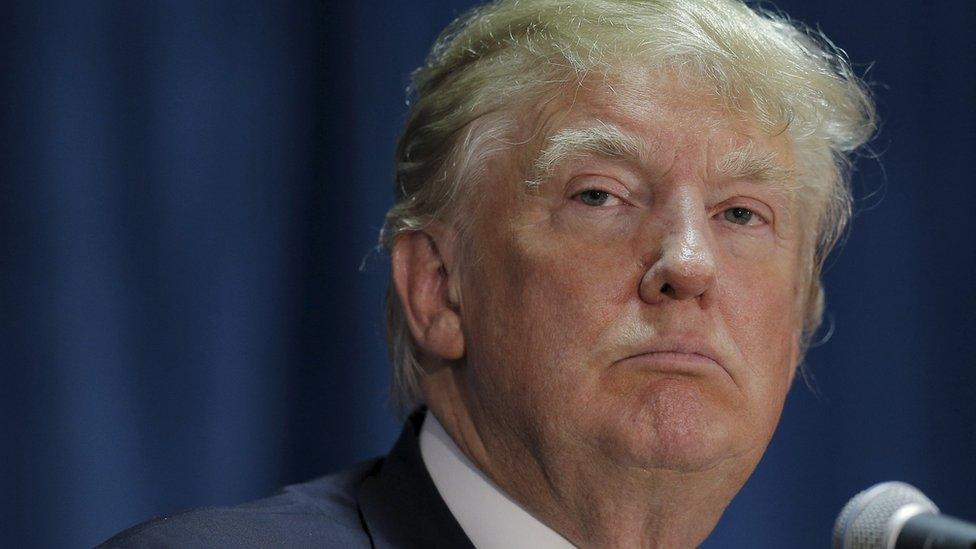Donald Trump defends his 'humane' deportation plan
- Published

Mr Trump claims he will send people out of the country "humanely"
Donald Trump has defended his hardline stance on immigration, a day after it was attacked by fellow Republican presidential candidates on national TV
His plan to deport the estimated 11 million people living illegally in the US was decried as impractical during an election debate in Wisconsin.
But he said on Wednesday it was cheap, "doable" and humane.
Democratic President Barack Obama wants to lift the threat of deportation to millions of undocumented people.
But his plan to allow about four million people to apply for work permits has been hindered by legal challenges.

Border Patrol agents in Texas
Mr Trump, a billionaire New Yorker who has been leading in the polls, defended his plan to build a wall on the US-Mexico border and deport all the people living illegally in the US.
"You're going to have a deportation force, and you're going to do it humanely," he told MSNBC's Morning Joe.
"You have millions of people that are waiting in line to come into this country and they're waiting to come in legally."
Debate exposes Republican divisions
He pointed to the actions of former US President Dwight Eisenhower, who authorised what was probably the largest deportation operations in US history.

What was Operation Wetback?
Sparked by post-war concerns about "invasion" of illegal labour from Mexico
Hundreds of immigration agents combed the SW in 1954 and 1955 searching for people without documents
More than a million people were taken, some transported deep into Mexican interior
Many died in the process
The term "wetback" is an offensive epithet for people living illegally in the US

Senator Ted Cruz backed Mr Trump during the debate, condemning any form of "amnesty" because illegal immigration kept wages low for American workers.
But his fellow Republican, Ohio Governor John Kasich, said that mass deportation was a "silly argument" that could never work and would split families.
The issue has exposed the diverging views within the party, and Florida Senator Marco Rubio clarified his stance on Wednesday.
He described his position as a "very long path" to citizenship when people had spent at least 10 years on a work permit.